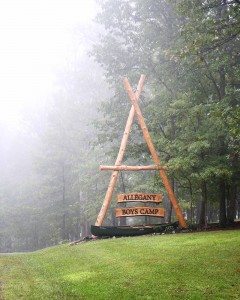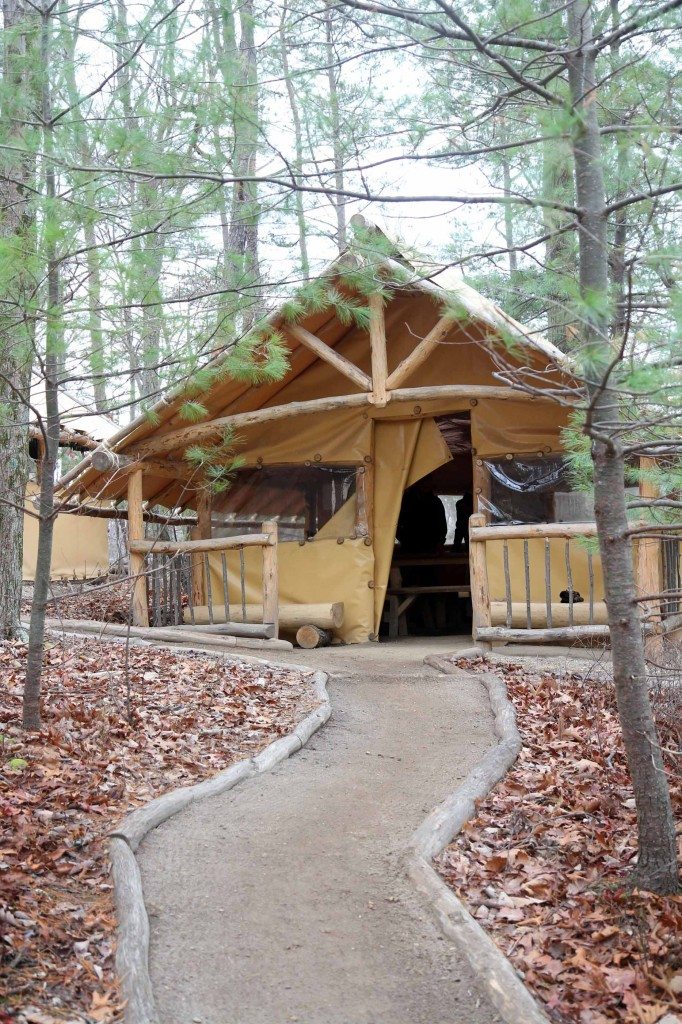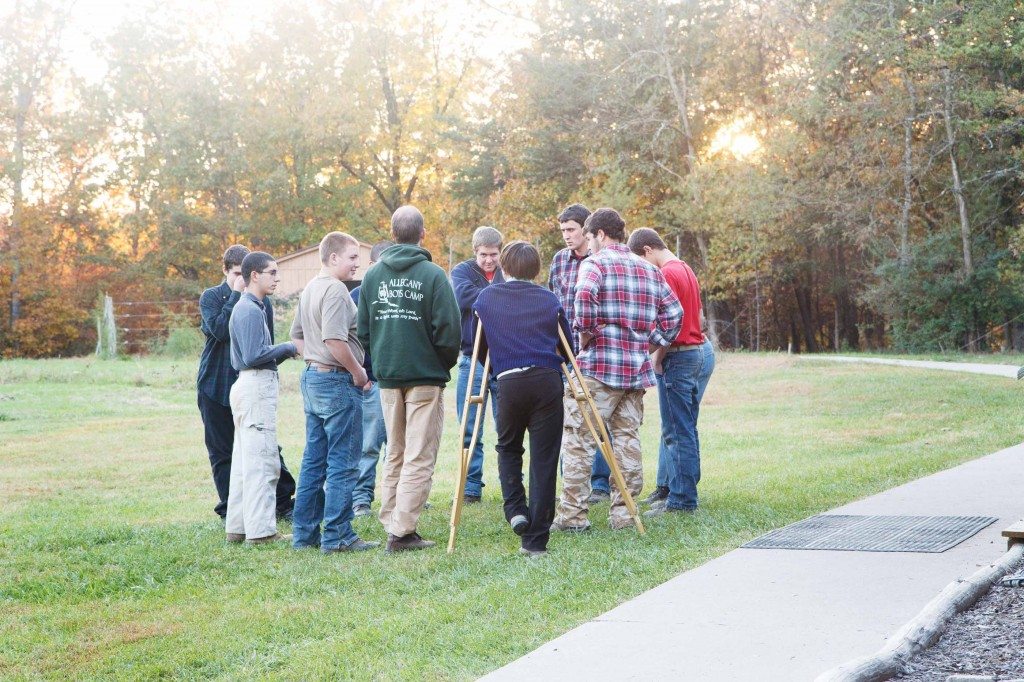 Driving into camp for the first time is an entrance to a different way of looking at life. Turning onto the simple, gravel lane and cresting a small hill reveals a few low-lying buildings sided in cedar. A walk down well-maintained trails leads to a simple campsite comprised of semi-permanent tents made with saplings lashed together and covered in canvas. There are primitive sleep tents, a chuck tent with a hand-hewn table for eating, writing or doing crafts; a cook tent, a privy, and a wood corral piled high with wood for cooking year round and keeping everyone warm during the winter. For a parent worried about the possibility of their son’s behavior earning him a place in a detention center, the absence of fences may come as a surprise. How can this work with boys who have been failing in their homes, schools, and society? Perhaps this, more than any other single factor, speaks most powerfully of the difference in camp’s program compared to traditional thought. Instead of focusing on his negative behavior, we appeal to a boy’s desire to make good choices. Instead of assuming the worst, we choose to believe in him. By offering positive expectations, we begin the foundation of a relationship by showing a boy respect.
Driving into camp for the first time is an entrance to a different way of looking at life. Turning onto the simple, gravel lane and cresting a small hill reveals a few low-lying buildings sided in cedar. A walk down well-maintained trails leads to a simple campsite comprised of semi-permanent tents made with saplings lashed together and covered in canvas. There are primitive sleep tents, a chuck tent with a hand-hewn table for eating, writing or doing crafts; a cook tent, a privy, and a wood corral piled high with wood for cooking year round and keeping everyone warm during the winter. For a parent worried about the possibility of their son’s behavior earning him a place in a detention center, the absence of fences may come as a surprise. How can this work with boys who have been failing in their homes, schools, and society? Perhaps this, more than any other single factor, speaks most powerfully of the difference in camp’s program compared to traditional thought. Instead of focusing on his negative behavior, we appeal to a boy’s desire to make good choices. Instead of assuming the worst, we choose to believe in him. By offering positive expectations, we begin the foundation of a relationship by showing a boy respect.
Camp functions on several basic tenets. We believe that every boy wants to be successful and that he wants to learn. We believe that his feelings are valid; that problem behaviors need to be faced. We believe that young people can help each other sort through what is happening and help each other learn to make good choices. Finally, we also believe that every boy needs to establish a trusting relationship with a caring adult.
Camp works in part because it separates a boy from the environment where he has been been failing miserably and by giving him a second chance. At camp, he is given many new opportunities to learn basic life skills physically and emotionally through daily living. When a boy is successful at splitting a log or cooking a menu he planned, he learns that he has value and that he has something to offer. When he helps his group build a sleep tent, he learns that it takes careful planning and hard work to create something and he feels a delightful sense of ownership in a job well done.
However, it is not only the separation from his previous environment or successfully learning new physical skills that help a boy change the values that influence his behavior. The most important work of camp is problem solving. Organization and routine bring structure into the lives of the group, but nothing supersedes the importance of a problem that arises. The group is never too rushed to talk through an issue. No matter what time of the day or night, no matter what activity is being engaged in, when a problem comes up, the group will circle up to talk about it.
Instead of punitive measures, any trouble that a boy has is dealt with in the context of it’s arrival. Most of the problems a boy has arise because of the feelings inside himself. He has very little confidence in his abilities, a negative self-image, and many times no trust in adults. Because everything at camp is done as a group, a problem affects not only the boy causing it but the entire group. Together the group and counselor find solutions for the problem until it is resolved. Over time as the process is repeated, a boy gains insight into his behavior and the way it affects himself and those around him. Gradually he learns how to overcome the difficulties that brought him to camp as his values and frame of reference are re-shaped into something positive. Ultimately, he will learn to solve problems independently in a way that will benefit him for the rest of his life.


